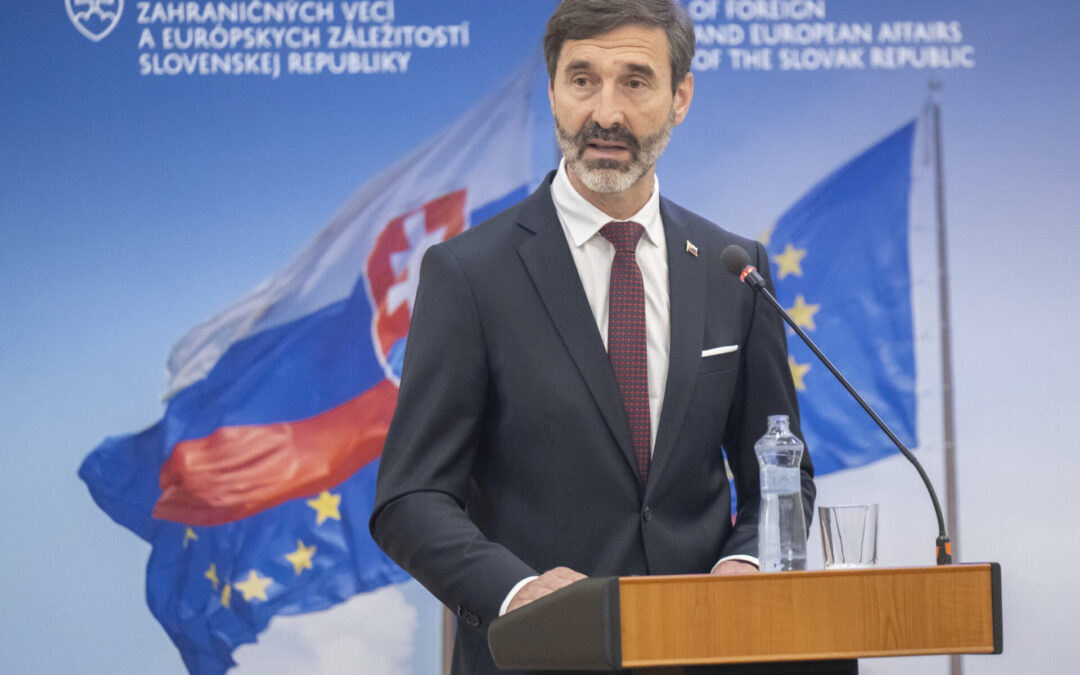Brussels – The overall picture of how to end the conflict in the Middle East is known – it won’t be possible without recognizing Palestinian statehood. Slovak Foreign Minister Juraj Blanár said this on Monday in Brussels after the EU Foreign Affairs Council meeting, reported TASR correspondent.
Blanár recalled that due to the “catastrophic” situation in the Gaza Strip, EU foreign ministers met on Sunday evening with diplomats from several Arab countries trying to support a ceasefire between Palestinians and Israel. This meeting was initiated by Norway and Saudi Arabia.
“We primarily talked about what we actually want to achieve. It was said that we already know how it all has to end. That means a ceasefire, humanitarian aid, and a two-state solution for these two countries,” he described the situation.
According to him, this means recognizing Palestine at all levels. Now it’s important to “assemble all the pieces of this puzzle,” which won’t be possible without recognizing Palestine as a state. And other countries should also take this step, especially if they claim that the only solution to this crisis is a two-state solution for Israel and Palestine.
Several European countries are preparing to recognize Palestinian statehood on Tuesday. Blanár recalled that Slovakia adopted the commitments of Czechoslovakia from 1988 on recognizing Palestine. He added that on May 10, Slovakia voted in the UN General Assembly for strengthening Palestine’s membership in the UN.
“These are steps towards a definitive solution after some truce and peace,” Blanár said. He added that it will be important not only for Palestine but also for Israel, as it is about establishing sustainable peace.
Monday’s talks were held in the presence of diplomats from Saudi Arabia, Jordan, Egypt, the United Arab Emirates, and Qatar, and the Secretary-General of the Arab League. According to Blanár, these countries have a clear idea of the necessary steps to resolve the crisis. He was struck by Jordan’s stance on resolving the “territorial integrity” of Palestine, i.e., specifying the borders of this state entity according to the 1967 territory.
The EU Council of Ministers condemned the aggressive behavior of Jewish settlers in the occupied territories of the West Bank. According to Arab state representatives, settler aggression has tripled, and such activities do not contribute to achieving peace.
“The conclusion, though very difficult, is that we will discuss on a common basis with Israel within the framework of the EU-Israel Association Agreement. We will communicate that it is necessary for Israel to respect the decision of the International Court of Justice, that the fighting in Rafah needs to stop, and that as many crossings as possible from Israel and Egypt need to be reopened so that sufficient humanitarian aid can flow to the Palestinians,” Blanár said. He recalled that Palestinians are facing famine, lack of medical care, and clean water, and Israeli military operations claim civilian victims every day, including women and children. (May 27)
 go to the original language article
go to the original language article
